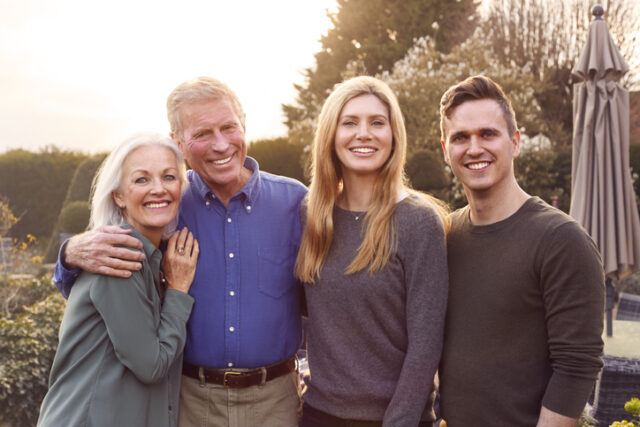It’s natural to want approval, but constantly worrying about what everyone else thinks all the time is really no way to live.

Learning to care less doesn’t mean becoming rude or dismissive of other people’s opinions, per se (though when it comes to their opinions about you, those are good to discard). In reality, it just means choosing peace over pressure, without losing your kindness. It’s a fine line to walk, but doing so is actually pretty simple. Here’s how to put this into practise in your own life.
1. Know the difference between kindness and people-pleasing.

Being kind comes from a genuine place, while people-pleasing often stems from fear. When you’re stuck in the habit of constantly trying to keep everyone happy, you end up putting your own needs last. That’s when resentment and burnout start to creep in. Changing that mindset doesn’t mean you stop being thoughtful; t means you stop saying yes when you really want to say no. You can be caring and still have boundaries, and those boundaries are what protect your mental peace.
2. Remember that most people aren’t thinking about you that much.

We tend to imagine everyone analysing our every move, but the truth is, most people are too busy thinking about themselves. That awkward comment you made or that outfit you were unsure about? Chances are, it didn’t even register. That doesn’t mean no one cares, but it does help put things in perspective. When you realise how little other people are actually scrutinising you, it becomes easier to step back and stop overthinking every interaction.
3. Ask yourself what matters more: your values or their opinions.

Other people’s opinions shift constantly, but your values are what anchor you. When you let your actions be guided by what really matters to you—honesty, growth, calm, creativity—outside approval becomes less important. Any time you catch yourself worrying about someone else’s judgement, pause and ask, “Does this decision reflect who I want to be?” That question brings the focus back to your core, rather than their expectations.
4. Notice the people whose opinions actually matter.

Not everyone’s feedback is worth holding onto. If you’re trying to live by every passing opinion, you’ll constantly feel pulled in different directions. However, there are a few people whose thoughts do carry weight, and that’s those who know you, respect you, and want the best for you. These are the voices to consider when you’re feeling unsure. Just make sure it’s coming from care and insight, not criticism or control. Everyone else? Let their noise float on by.
5. Practise saying no without the long explanation.

Many of us feel like we need a reason for every “no,” as if our boundaries have to be justified to be valid. But a polite, simple “I’m not available,” or, “That doesn’t work for me,” is more than enough. You don’t have to bend over backwards explaining yourself just to avoid disappointing someone. Every time you say no clearly and kindly, you train yourself to value your time and peace without guilt.
6. Learn to sit with discomfort rather than avoid it.

One of the biggest reasons we care so much is because we hate the feeling of someone being upset with us. However, not all discomfort is bad. Sometimes it’s part of growth. Disapproval, awkwardness, or disagreement won’t break you. Instead of rushing to fix how someone feels, try allowing the feeling to exist. You don’t have to solve it. The more you build tolerance for discomfort, the easier it becomes to live by your own compass.
7. Stop chasing the fantasy of universal approval.

No matter how perfect you try to be, someone will still misinterpret you, dislike you, or expect something more. Chasing universal approval is like trying to outrun your shadow—it’s just not possible. Letting go of that goal frees up energy you can use elsewhere. We’re talking building confidence, investing in genuine connections, or simply doing things because they feel good to you, not because they’ll please everyone.
8. Don’t confuse directness with being unkind.

Being clear and assertive doesn’t make you a jerk; it just means you’re not sugarcoating everything. You can be honest without being harsh, and firm without being cold. It’s all about tone and intention. People often respond better to straightforward communication than we expect. When you speak from a calm, respectful place, you set the tone for other people to meet you there, too.
9. Let go of outdated stories about who you “should” be.

A lot of our overthinking comes from old beliefs that we should always be nice, never say no, or avoid rocking the boat. These scripts might’ve kept us safe at some point, but they often outgrow their usefulness. Start replacing those stories with ones that allow for complexity: “It’s okay to be kind and have limits,” or, “I can be liked and still make people uncomfortable sometimes.” New narratives allow more freedom and peace.
10. Practise doing small things without overthinking the reaction.

If going against the grain feels scary, start with low-stakes situations. Wear the outfit you love, post something you care about, or speak up when you usually stay silent, and watch what happens. Each time you make a small choice based on your own voice, you prove to yourself that approval isn’t essential. It builds confidence bit by bit, until not caring becomes more natural than constant second-guessing.
11. Be willing to disappoint some people.

This one’s tough, for sure, but it’s part of the process. You will disappoint people sometimes, especially if they’re used to you always putting their needs first. That doesn’t make you selfish. It makes you human. Disappointment isn’t always a sign that you’ve done something wrong, anyway. Sometimes it’s just a sign that you’re finally doing something right for yourself. Let that settle in and soften the guilt when it comes up.
12. Tune into how much better you feel when you honour yourself.

One of the best motivators for caring less is noticing how good it feels when you stay true to yourself. There’s less tension, fewer regrets, and more energy for things that matter. That sense of alignment is hard to beat. The next time you’re caught in the loop of overthinking someone’s reaction, pause and ask: “Will I feel proud of myself later for doing this?” Often, your body already knows the answer—you just have to listen to it.
13. Be kind to yourself when you slip up.

It’s normal to fall back into old patterns sometimes, such as over-apologising, people-pleasing, or worrying too much about someone’s opinion. That doesn’t mean you’ve failed, it just means you’re human and learning. What matters more is how you respond next. Can you notice it without judgement? Can you reflect, reset, and try again? Self-compassion makes this process way more sustainable, and less of a mental battle.
14. Surround yourself with people who respect the real you.

It’s so much easier to stop caring what people think when you’re around those who love you as you are. These are the people who encourage your authenticity, not your performance, and who won’t punish you for having boundaries or opinions. If your circle makes you feel like you constantly have to perform or prove something, it might be time to rethink it. Real friends let you exhale, not walk on eggshells.
15. Remind yourself that respect lasts longer than approval.

Trying to please everyone might win you temporary approval, but standing firm in who you are, even when it’s uncomfortable, earns lasting respect. It shows self-respect too, which is even more powerful. In the long run, people tend to remember how you treated yourself just as much as how you treated them. Choosing authenticity over approval might not win everyone over, but it will win over the ones who matter.




